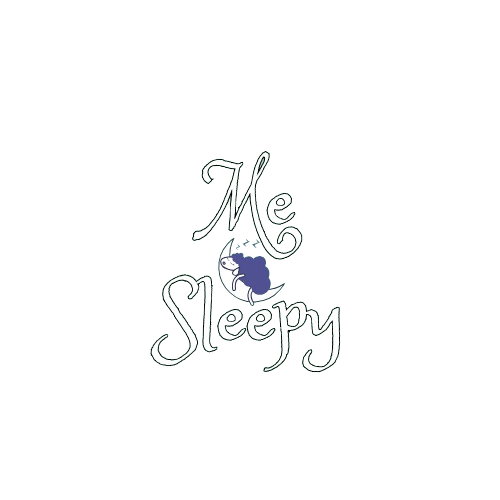Insomnia and Evening Chronotypes: A Risk for Depression
Explanation of How Evening Chronotypes, or Night Owls, Are More Prone to Insomnia and Depression
Evening chronotypes, commonly known as night owls, are individuals who naturally prefer staying up late and waking up later in the day. This preference for late-night activity can have significant implications for their mental health. Research has consistently shown that night owls are more susceptible to insomnia and depression compared to their early-rising counterparts, known as morning chronotypes. The disruption of the natural sleep-wake cycle in evening chronotypes often leads to poor sleep quality, which is a known risk factor for both insomnia and depression. The misalignment between their internal body clock and societal norms, such as early work or school schedules, exacerbates this issue, leading to sleep deprivation and increased vulnerability to mood disorders.
Discussion of the Study’s Findings on the Correlation Between Staying Up Late and Increased Depression Symptoms
A recent study published in the journal PLOS ONE by Simon Evans and colleagues from the University of Surrey, UK, sheds light on the correlation between staying up late and increased depression symptoms. The study involved 546 university students who provided self-reported data on their sleep patterns, mindfulness, rumination tendencies, alcohol use, and levels of depression and anxiety. The findings confirmed that individuals with an evening chronotype were at a significantly higher risk for depression. This association was attributed to differences in mindfulness, sleep quality, and alcohol consumption. On average, night owls reported poorer sleep quality, higher alcohol consumption, and lower mindfulness levels compared to morning chronotypes. These factors collectively contribute to the heightened risk of depression among those who stay up late.
Factors Contributing to Insomnia and Depression in Night Owls
The Role of Poor Sleep Quality and Its Impact on Insomnia and Depression
Poor sleep quality is a critical factor contributing to insomnia and depression in night owls. The irregular sleep patterns and insufficient rest experienced by evening chronotypes can lead to chronic sleep deprivation. This lack of restorative sleep not only exacerbates insomnia but also increases the likelihood of developing depression. Sleep is essential for emotional regulation and cognitive functioning, and its disruption can lead to mood disturbances and impaired mental health. The study highlights that night owls often experience fragmented sleep, difficulty falling asleep, and reduced overall sleep duration, all of which contribute to their increased risk of depression.
Influence of Alcohol Consumption on Sleep Patterns and Mental Health
Alcohol consumption is another significant factor influencing sleep patterns and mental health in night owls. The study found that evening chronotypes tend to consume more alcohol compared to morning chronotypes. Alcohol, while initially sedative, can disrupt sleep architecture, leading to poor sleep quality and increased awakenings during the night. This disruption further exacerbates insomnia symptoms and negatively impacts mental health. Additionally, alcohol is a known depressant, and its excessive consumption can contribute to the development of depressive symptoms. The combination of poor sleep quality and high alcohol intake creates a vicious cycle that heightens the risk of depression in night owls.

Mindfulness as a Mediator in Insomnia and Depression
How Mindfulness Practices Can Potentially Mitigate the Effects of Insomnia and Reduce Depression Risk
Mindfulness, the practice of maintaining a moment-by-moment awareness of our thoughts, feelings, bodily sensations, and surrounding environment, can play a crucial role in mitigating the effects of insomnia and reducing the risk of depression. For night owls, incorporating mindfulness practices into their daily routine can help in managing stress and improving sleep quality. By fostering a non-judgmental awareness of the present moment, mindfulness can aid in breaking the cycle of rumination and anxiety that often accompanies insomnia. Techniques such as mindful breathing, meditation, and body scans can promote relaxation and enhance emotional regulation, potentially leading to better sleep and a decrease in depressive symptoms.
The Study’s Findings on the Lower Mindfulness Levels in Evening Chronotypes Compared to Morning Chronotypes
The study conducted by Simon Evans and colleagues highlighted a significant difference in mindfulness levels between evening and morning chronotypes. Night owls were found to exhibit lower levels of mindfulness, which may contribute to their heightened risk of depression. This lack of mindfulness can exacerbate the negative effects of poor sleep quality and high alcohol consumption, creating a challenging environment for mental health. By addressing this gap, interventions that promote mindfulness could be particularly beneficial for evening chronotypes. Encouraging night owls to engage in regular mindfulness practices may help them develop healthier sleep habits and improve their overall mental well-being.
Potential Interventions for Insomnia and Depression in Young Adults
Suggestions for Interventions Focusing on Improving Sleep Quality and Reducing Alcohol Consumption
To combat the challenges faced by night owls, targeted interventions focusing on improving sleep quality and reducing alcohol consumption are essential. Establishing a consistent sleep schedule, even on weekends, can help regulate the internal body clock and improve sleep quality. Creating a relaxing bedtime routine, such as listening to calming music or using Sleep Sound Playlists, can also promote better sleep. Additionally, reducing alcohol intake, especially in the hours leading up to bedtime, can prevent disruptions in sleep architecture and enhance overall sleep quality. These lifestyle changes, combined with mindfulness practices, can significantly reduce the risk of insomnia and depression.
Importance of Targeting Young Adults Who Are More Likely to Experience Insomnia and Mental Health Issues
Young adults, particularly university students, are at a critical stage where they are more likely to experience insomnia and mental health issues. The pressures of academic life, coupled with the tendency to stay up late, make this demographic particularly vulnerable. By targeting young adults with tailored interventions, we can address the root causes of their sleep and mental health challenges. Educational programs that raise awareness about the importance of sleep hygiene, mindfulness, and responsible alcohol consumption can empower young adults to make informed choices. For more insights and strategies, exploring resources like the Sleep Disorder Blog can provide valuable guidance in managing sleep-related issues.
Source: https://www.sciencedaily.com/releases/2025/03/250319142844.htm


